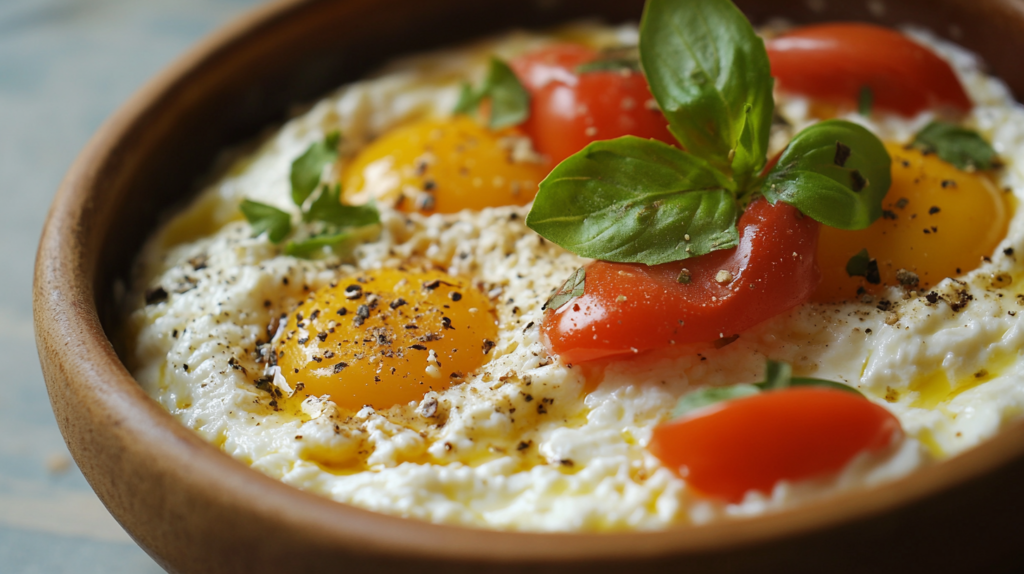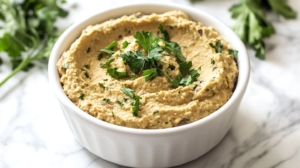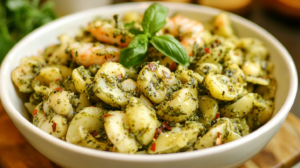What are Cottage Cheese Eggs?
Cottage cheese eggs are a protein-packed combination of two nutritious ingredients—cotage cheese and eggs. This dish blends the creamy texture of cotage cheese with the rich flavor of eggs, creating a versatile option for breakfast, brunch, or even quick snacks.
Definition and Overview
C c eggs refer to a dish where C c eggs is mixed with beaten eggs, either scrambled, baked, or made into an omelet:
- Ingredients: Typically, eggs and cottage cheese form the base, with optional additions like herbs, spices, vegetables, or meats.
- Texture: The cottage cheese melts slightly during cooking, adding creaminess to the fluffy texture of the eggs.
- Nutritional Value: High in protein, calcium, and healthy fats, C c eggs are an ideal choice for those seeking a nutrient-dense meal.
This simple yet satisfying dish caters to various dietary preferences, including keto, low-carb, and high-protein diets.
How Cottage Cheese and Eggs Work Together
C c eggs complement each other perfectly in terms of flavor, texture, and nutrition:
- Creaminess and Moisture:
- Cottage cheese adds moisture and creaminess, preventing eggs from becoming dry or rubbery during cooking.
- Enhanced Flavor:
- The mild tanginess of cottage cheese enhances the savory flavor of eggs without overpowering them.
- Balanced Nutrition:
- Eggs provide high-quality protein and essential vitamins, while cottage cheese contributes additional protein, calcium, and probiotics for gut health.
This harmonious pairing creates a dish that’s as delicious as it is nutritious.
Popularity in Modern Cooking Trends
C c eggs have gained popularity in recent years, thanks to their versatility and health benefits:
- Health-Conscious Eating:
- With the rise of high-protein and low-carb diets, cottage cheese eggs have become a staple for those seeking balanced, healthy meals.
- Meal Prep:
- The dish is easy to prepare ahead of time and reheats well, making it a favorite for busy lifestyles.
- Customization:
- It serves as a blank canvas for endless variations, allowing home cooks to add ingredients like spinach, tomatoes, ham, or even hot sauce for personalized flavors.
- Social Media Appeal:
- Recipes for cottage cheese eggs have gained traction on platforms like Instagram and TikTok, where their simplicity and versatility are showcased.
C c eggs are a modern twist on a classic protein pairing, offering a delicious, nutrient-rich meal option for any time of the day. Their ease of preparation and adaptability make them a favorite for health-conscious eaters and food enthusiasts alike.
Nutritional Value of Cottage Cheese Eggs
C c eggs are a powerhouse of nutrition, combining the benefits of two highly nutritious ingredients. They are an excellent choice for a protein-rich and balanced meal to start your day.
Protein-Packed Breakfast Option
One of the standout features of C c eggs is their high protein content:
- Eggs: Each large egg provides about 6 grams of protein, along with essential amino acids.
- Cottage Cheese: Low-fat cottage cheese contributes approximately 14 grams of protein per half-cup, making this combination an ideal option for muscle repair and sustained energy.
- Combined Power: Together, they deliver a protein-rich meal that keeps you fuller for longer, reducing mid-morning cravings.
This high-protein breakfast is especially beneficial for active individuals, athletes, or anyone looking to maintain a healthy diet.
Key Vitamins and Minerals
C c eggs offer a wide range of essential nutrients that contribute to overall health:
- Eggs:
- Vitamin D: Supports bone health and immune function.
- Choline: Important for brain health and cognitive function.
- Iron and Selenium: Boosts red blood cell production and acts as an antioxidant.
- Cottage Cheese:
- Calcium: Strengthens bones and teeth.
- Phosphorus: Works with calcium for bone maintenance.
- Probiotics: Found in some types of cottage cheese, they promote gut health.
This nutrient-dense combination delivers the vitamins and minerals needed to fuel your body and support vital functions.
Comparing Cottage Cheese Eggs to Other Breakfast Choices
C c eggs stand out as a nutritious and satisfying option when compared to common breakfast staples:
- C c eggs vs. Cereal:
- Protein: Cottage cheese eggs offer significantly more protein, while cereals are often high in sugar and carbohydrates.
- Satiety: The protein and fat content of cottage cheese eggs keep you feeling full longer.
- C c eggs vs. Toast with Jam:
- Nutritional Density: Toast with jam provides primarily carbohydrates and little protein, while cottage cheese eggs offer a balanced mix of macronutrients.
- C c eggs vs. Smoothies:
- Customizability: Both options can be tailored to your preferences, but cottage cheese eggs provide a savory alternative for those who prefer non-sweet breakfasts.
C c eggs are a nutritional standout, offering high-quality protein, essential vitamins, and minerals. Their ability to keep you full and energized makes them a superior breakfast choice, whether you’re focused on health, convenience, or flavor.
How to Make Cottage Cheese Eggs at Home
C c eggs are a quick, easy, and nutritious dish that can be prepared in minutes. Whether you’re new to cooking or a seasoned pro, this simple recipe delivers delicious results every time.
Ingredients and Tools Needed
Ingredients:
- Eggs: 2-3 large eggs, depending on your portion size.
- Cottage Cheese: 1/4 to 1/2 cup of low-fat or full-fat cottage cheese.
- Butter or Oil: 1 teaspoon for greasing the pan.
- Salt and Pepper: To taste.
- Optional Additions:
- Fresh herbs (e.g., parsley, chives, or basil).
- Vegetables (e.g., spinach, tomatoes, or bell peppers).
- Protein (e.g., diced ham or smoked salmon).
Tools:
- A medium-sized bowl for whisking eggs.
- A non-stick skillet or frying pan.
- A whisk or fork.
- A spatula for stirring and flipping.
Step-by-Step Instructions for Beginners
- Prepare the Ingredients:
- Crack the eggs into the bowl and add a pinch of salt and pepper.
- Whisk the eggs until well combined and slightly frothy.
- Measure out the cottage cheese and have any optional ingredients prepped.
- Heat the Pan:
- Place the skillet over medium heat and add the butter or oil.
- Allow the butter to melt completely, coating the pan evenly.
- Combine Eggs and Cottage Cheese:
- Stir the cottage cheese into the whisked eggs. You can mix it thoroughly for a uniform texture or leave small chunks for added creaminess.
- Cook the Eggs:
- Pour the egg mixture into the heated pan.
- Let it set for a few seconds, then gently stir with a spatula.
- Continue to cook, stirring occasionally, until the eggs are softly set and slightly creamy. Avoid overcooking to maintain moisture.
- Serve Immediately:
- Transfer the cottage cheese eggs to a plate and garnish with fresh herbs or additional toppings as desired.
Pro Tips for Perfect Results
- Use Room Temperature Eggs:
- Room-temperature eggs whisk more easily and cook more evenly, creating fluffier results.
- Choose the Right Cottage Cheese:
- For a smoother texture, opt for small curd cottage cheese. If you prefer a chunkier texture, go for large curd varieties.
- Cook on Low Heat:
- Low to medium heat prevents the eggs from overcooking and becoming rubbery.
- Experiment with Flavors:
- Add spices like paprika or garlic powder for extra flavor, or toss in sautéed vegetables for a more substantial meal.
- Don’t Over-Stir:
- Stirring too frequently can break down the eggs and make them less creamy.
By following these steps and tips, you can create perfect cottage cheese eggs at home, tailored to your taste and preferences. Enjoy them as a standalone dish or pair with toast or avocado for a complete meal.
Serving Suggestions for Cottage Cheese Eggs
Cottage cheese eggs are versatile and pair well with a variety of sides and toppings. Elevate this simple dish with flavorful accompaniments and thoughtful pairings to create a well-rounded meal.
Pairing with Vegetables
Adding vegetables to cottage cheese eggs not only boosts their nutritional value but also enhances their flavor and texture:
- On the Side:
- Serve with roasted or steamed vegetables like asparagus, broccoli, or zucchini for a balanced plate.
- Pair with a fresh garden salad for a light and refreshing option.
- Mixed In:
- Stir sautéed spinach, diced tomatoes, or bell peppers directly into the egg mixture for added color and taste.
- Add mushrooms or onions for a savory twist.
- Avocado:
- Slice or mash avocado to serve alongside the eggs. Its creamy texture and healthy fats complement the richness of the dish.

Adding Herbs and Spices
Herbs and spices can transform cottage cheese eggs from simple to gourmet with minimal effort:
- Fresh Herbs:
- Sprinkle chopped parsley, chives, or basil over the eggs for a burst of freshness.
- Try dill or cilantro for unique flavor profiles.
- Spices:
- Add a pinch of paprika, cumin, or turmeric for extra depth and a hint of warmth.
- Use crushed red pepper flakes for a spicy kick.
- Seasoning Blends:
- Experiment with seasoning blends like Italian herbs, za’atar, or everything bagel seasoning for added complexity.
These additions elevate the eggs’ natural flavor, making them even more enjoyable.
Complementing with Whole-Grain Bread
Whole-grain bread is an excellent accompaniment to cottage cheese eggs, providing fiber and a satisfying crunch:
- Toast:
- Serve the eggs with toasted whole-grain bread or sourdough for a classic pairing.
- Spread a thin layer of butter, avocado, or hummus on the toast for added flavor.
- Wraps:
- Use a whole-grain tortilla or pita to turn cottage cheese eggs into a portable breakfast wrap. Add spinach or salsa for extra flair.
- Sandwiches:
- Layer the eggs between slices of whole-grain bread along with tomatoes, lettuce, and a slice of cheese for a hearty sandwich option.
C c eggs are a blank canvas for creativity, pairing effortlessly with vegetables, herbs, spices, and whole-grain bread. These serving suggestions offer endless possibilities to tailor the dish to your preferences and enjoy it as a satisfying meal at any time of the day.
Storage and Meal Prep Tips
Cottage cheese eggs are not only quick to make but also perfect for meal prepping. With proper storage and reheating techniques, you can enjoy this protein-packed dish throughout the week.
How to Store Leftover Cottage Cheese Eggs
Proper storage ensures that your leftover C c eggs remain fresh and safe to eat:
- Use an Airtight Container:
- Transfer the eggs to an airtight container to retain moisture and prevent odors from other foods.
- Refrigeration:
- Store in the refrigerator for up to 3 days. Ensure the eggs are fully cooled before sealing the container to avoid condensation.
- Freezing (Optional):
- While freezing is not ideal for scrambled eggs due to texture changes, you can freeze them if necessary. Place the eggs in a freezer-safe container and use within 1 month for best quality.
Reheating without Compromising Flavor
Reheating cottage cheese eggs properly ensures they retain their texture and taste:
- Microwave Method:
- Place the eggs on a microwave-safe plate and cover with a damp paper towel to prevent drying.
- Heat in 15-20 second intervals, stirring gently between intervals until warmed through.
- Stovetop Method:
- Reheat in a non-stick skillet over low heat, stirring frequently to avoid overcooking.
- Add a small splash of milk or a dollop of extra cottage cheese to restore moisture.
- Oven Method:
- For larger portions, reheat in an oven-safe dish at 300°F (150°C) for 10-15 minutes, stirring occasionally.
Avoid high heat, as it can cause the eggs to become rubbery or overcooked.
Incorporating into Weekly Meal Prep
Cottage cheese eggs are a great addition to your weekly meal prep routine:
- Batch Cooking:
- Prepare a large batch of cottage cheese eggs and portion them into individual containers for easy grab-and-go meals.
- Customizable Additions:
- Add vegetables, spices, or proteins to each portion to create variety throughout the week.
- Multi-Use Meal Prep:
- Use the eggs as a base for breakfast wraps, sandwiches, or grain bowls.
- Pair with different sides, such as roasted vegetables or whole-grain bread, for versatile meals.
- Label and Organize:
- Label containers with the date of preparation and store them in an organized section of your fridge for easy access.
With proper storage and reheating techniques, C c eggs remain delicious and versatile. By incorporating them into your meal prep routine, you can enjoy a nutritious, hassle-free option for breakfast or snacks throughout the week.
Frequently Asked Questions About Cottage Cheese Eggs
C c eggs are a versatile and nutritious dish, but you might have some questions about how to prepare and customize them. Here are answers to some commonly asked questions.
How Do You Add Cottage Cheese to Eggs?
Adding cottage cheese to eggs is simple and enhances both flavor and texture:
- Mix Before Cooking:
- Whisk cottage cheese directly into the beaten eggs before cooking. This creates a creamy texture and distributes the cheese evenly.
- Add During Cooking:
- Stir cottage cheese into the eggs midway through cooking for a chunkier texture and pockets of cheesy flavor.
- As a Garnish:
- Sprinkle cottage cheese over cooked eggs as a finishing touch for a fresh, creamy addition.
Experiment with different methods to find your preferred consistency and taste.
How Do You Make Eggs with Cottage Cheese?
Making eggs with C c eggs is easy and requires just a few ingredients:
- Ingredients:
- Eggs
- Cottage cheese
- Butter or oil for cooking
- Optional seasonings (salt, pepper, herbs)
- Steps:
- Whisk the eggs in a bowl with salt, pepper, and a scoop of cottage cheese.
- Heat a non-stick skillet with butter or oil over medium heat.
- Pour the egg mixture into the skillet and cook, stirring occasionally, until softly set.
This straightforward method creates a creamy, protein-rich dish perfect for breakfast or a quick snack.
How Do You Make Scrambled Eggs with C c eggs?
To make scrambled eggs with C c eggs:
- Whisk the Mixture:
- Combine eggs, a spoonful of cottage cheese, and your desired seasonings in a bowl. Whisk until well-blended.
- Cook Slowly:
- Heat a non-stick skillet over medium-low heat with a small amount of butter or oil.
- Add the egg mixture to the skillet and allow it to set slightly before gently stirring.
- Finish Softly:
- Remove the eggs from the heat while still slightly undercooked, as residual heat will finish cooking them. This ensures they stay creamy and moist.
Serve immediately, garnished with fresh herbs or a sprinkle of cheese.
C c eggs are easy to prepare and highly customizable. Whether you mix C c eggs directly into the eggs, scramble them together, or use it as a topping, this combination provides a delicious and nutritious way to enjoy eggs.
1 https://recipes4hub.com/fleur-de-sel-history-uses-and-benefits/
2 https://recipes4hub.com/peach-cobbler-using-cake-mix-simple-recipe-and-tips/
3 https://recipes4hub.com/how-much-juice-in-a-lime-a-complete-guide/


